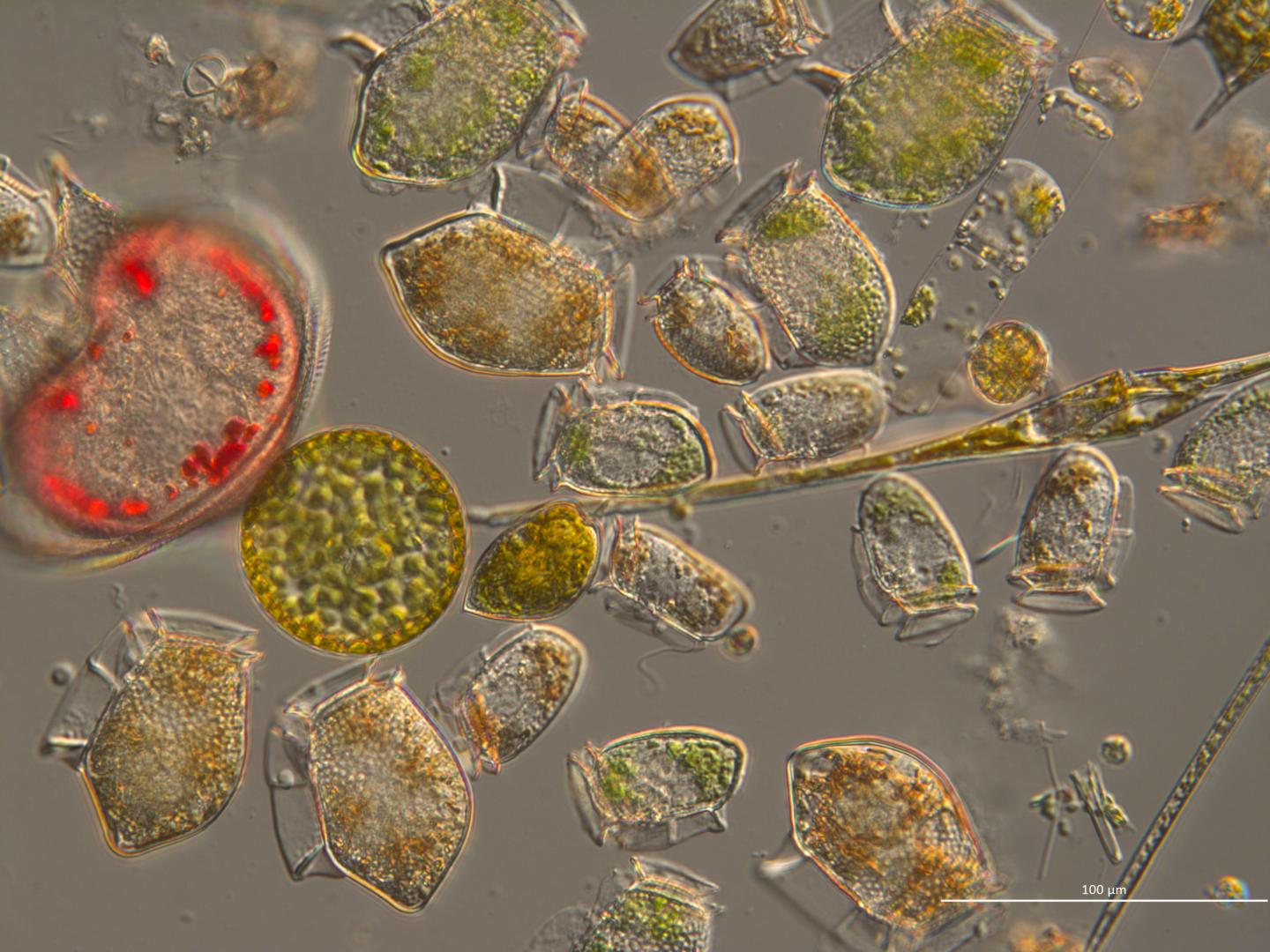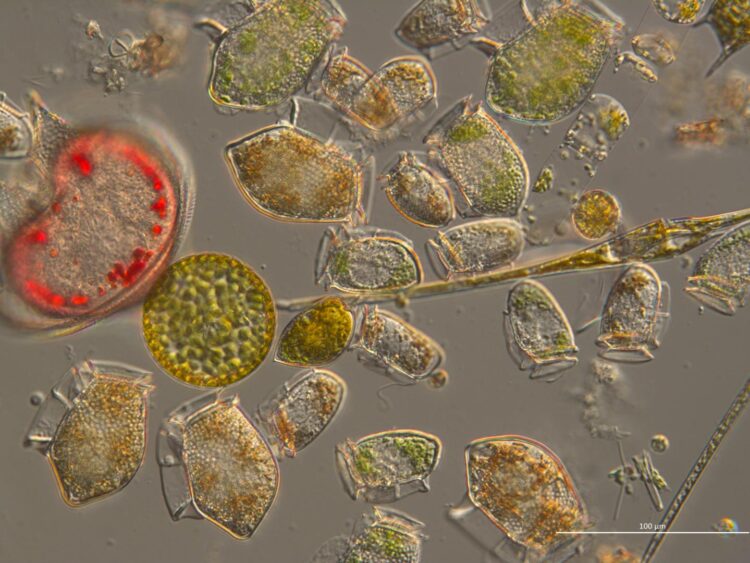
Credit: Claire Widdicombe
A shortage of summer nutrients as a result of our changing climate has contributed to a 50% decline in important North East Atlantic plankton over the past 60 years.
New research, published in Global Change Biology, shows that larger, nutritious plankton – vital to support fish, seabirds and marine mammals – are being replaced by tiny, primary producers that are of poorer food quality.
Changes from cloudier and wetter summers to longer periods of sunshine and drought have led to decreasing iron and nutrient supply to surface waters. This results in an increased period of suboptimal feeding conditions for zooplankton at a time of year when their metabolic demand is at its highest.
In some areas, large phytoplankton are being almost completely replaced by picoplankton, especially the cyanobacterium Synechococcus, that flourishes when iron and nitrogen levels in surface waters are very low.
However, its small size and lack of essential biomolecules mean it is unable to function in the same way as larger, more nutritious phytoplankton – a vital primary producer of omega-3 – and cannot sustain shelf sea food webs efficiently.
With Synechococcus prominent from the tropics to the Arctic, and its abundance increasing worldwide, scientists suggest that competition for scarce summer nutrients will become a key force in structuring shelf sea food webs. Shelf seas provide around 80% of the world’s wild-captured seafood, and changes in their productivity will have major effects on humans.
The study was led by scientists at the University of Plymouth (funded through the Natural Environment Research Council’s Shelf Sea Biogeochemistry Programme), working with colleagues from Plymouth Marine Laboratory, the Marine Biological Association, and the University of Southampton. It brought together experts from a range of fields including trace metal analysis, plankton taxonomy, and satellite data.
Lead author Dr Katrin Schmidt, a plankton ecologist in the University of Plymouth’s School of Geography, Earth and Environmental Sciences, said: “Zooplankton such as copepods are considered beacons of climate change, and the ~50% decline in their abundance over the last six decades is worrying. Our study is the first to provide a mechanism for such a wide-spread decline, and this understanding is essential to project future responses to climate change. We also need to explore the wider impacts and whether the changing nutrient supply could, for example, lead to reductions in omega-3 within the entire food chain.”
The study was based on an area measuring 2,000km by 1,500km in the North East Atlantic, and used a combination of data generated by satellites and the MBA’s Continuous Plankton Recorder (CPR) survey. It allowed scientists to identify both longer and shorter-term trends, the spatial extent of any changes and the months that are most affected.
It also used intensive field observations of the phytoplankton community and, by linking the two scales, provided a conceptual model of why the classical food web is increasingly under threat in temperate coastal and shelf areas.
In combination, both satellite and CPR data show similar changes over the longer (1958-2017) and shorter (1997-2018) terms. Between May and August/September in those years, numbers of diatoms, dinoflagellates and total copepods have all declined, while the proportion of picophytoplankton has increased.
Co-author Dr Luca Polimene, Senior Marine Ecosystem Modeller at Plymouth Marine Laboratory, said: “The increasing dominance of small phytoplankton species might have a broad impact on the marine ecosystem. Other than altering the food chain as suggested in this study, it could also change the biological carbon pump modifying the capacity of the ocean to store carbon. We need to make sure that the shift between large to small phytoplankton species is well captured by marine ecosystem models if we want to reliably simulate future oceans.”
David Johns, Head of the Continuous Plankton Recorder Survey, added: “While the CPR Survey samples the larger plankton community, declines in some key groups over past decades can be linked to changes in the smallest plankton that are driven by climate change. We have previously witnessed direct climate impacts on the plankton community, from seasonality (temporal) to large scale movements (spatial), via changes in temperature. This study demonstrates a knock-on effect through the food web, and it is only by continuing our monitoring that we will identify multiple stressors acting on our marine environment, and hopefully sustain and protect our productive oceans.”
###
Media Contact
Alan Williams
[email protected]





